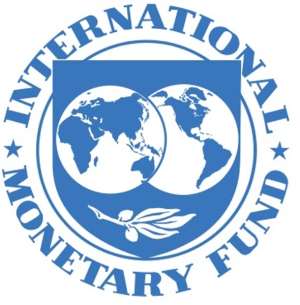
HARARE, Zimbabwe, October 24, 2014/African Press Organization (APO)/ -- Ms. Antoinette Monsio Sayeh, Director of the International Monetary Fund (IMF) African Department, visited Zimbabwe from October 21-24, 2014, to meet with the Zimbabwean authorities and other stakeholders and to present the Fall 2014 Regional Economic Outlook, on Sub-Saharan Africa (see Press Release No:14/475). At the conclusion of her visit she made the following statement:
“It has been a great pleasure for me to visit Zimbabwe. I have had the privilege of meeting Chief Secretary of the President's Office and Cabinet Dr. Misheck Sibanda, Deputy Minister of Finance and Economic Development Dr S. Udenge, the Governor of the Reserve Bank of Zimbabwe Dr. John Mangudya and members of parliament. I also had the opportunity to meet with representatives of the private sector, civil society and development partners.
“In my meetings with the Zimbabwean authorities, we exchanged views on the global economy, the regional economic outlook, and how to improve the growth prospects for Zimbabwe. In particular, we discussed how the IMF can further support the authorities' economic reform agenda and their efforts toward normalizing relations with both multilateral and bilateral creditors.
“For most of sub-Saharan Africa, growth trends remain favorable. We expect the region's economy to expand by 5 percent in 2014 and 5¾ percent in 2015, and sub-Saharan Africa is forecast to remain the second fastest-growing region in the world, just behind emerging and developing Asia. However, this positive picture co-exists with the dire situation in Guinea, Liberia, and Sierra Leone, where the Ebola outbreak is exacting a heavy human and economic toll. Lower growth in emerging markets and the anticipated monetary tightening in advanced economies could also have a negative impact on the region. Sustaining high growth in the region remains the key policy consideration and will require striking the right balance between scaling up public investment to fill infrastructure gaps and maintaining debt sustainability.
“With regard to Zimbabwe, economic conditions remain difficult. During our meetings, I highlighted four issues that are key to helping fast-track the country's policy reform agenda and to gathering support toward a strategy for clearing the outstanding arrears: balancing the primary fiscal budget; restoring confidence and stability in Zimbabwe's financial sector; addressing the country's debt challenge; and enhancing the business environment with a view to attracting investments. I know these issues are high on the authorities' policy reform agenda, and they are going to be monitored with the help of IMF staff under a proposed new 15-month Staff Monitored Program (SMP) through to December 2015.1
“I welcome the authorities' intent to re-engage with the international financial community in addressing the country's economic challenges.
“I would also like to express my deep gratitude to the Zimbabwean government and people for their gracious hospitality.”
1 An SMP is an informal agreement between country authorities and Fund staff, whereby the latter agree to monitor the implementation of the authorities' economic program. SMPs do not entail financial assistance or endorsement by the IMF Executive Board.




 NDC demands complete overhaul of security protocols at EC to safeguard electoral...
NDC demands complete overhaul of security protocols at EC to safeguard electoral...
 Ghana reaches interim deal with international bondholders — Finance Ministry
Ghana reaches interim deal with international bondholders — Finance Ministry
 Mahama to form joint army-police anti-robbery squads to safeguard 24-hour econom...
Mahama to form joint army-police anti-robbery squads to safeguard 24-hour econom...
 Another man jailed eight months over shrinking penis
Another man jailed eight months over shrinking penis
 Ghana to adjust external bond deal to meet IMF debt sustainability goals — Finan...
Ghana to adjust external bond deal to meet IMF debt sustainability goals — Finan...
 IMF negotiations: We've not failed to reach an agreement with bondholders; we’ve...
IMF negotiations: We've not failed to reach an agreement with bondholders; we’ve...
 EC begins recruitment of temporary electoral officials, closes on April 29
EC begins recruitment of temporary electoral officials, closes on April 29
 NPP lost the 2024 elections in 2022 due to inflation and cedi depreciation — Mar...
NPP lost the 2024 elections in 2022 due to inflation and cedi depreciation — Mar...
 Your good heart towards Ghana has changed; don’t behave like Saul - Owusu Bempah...
Your good heart towards Ghana has changed; don’t behave like Saul - Owusu Bempah...
 Wa West: NDC organizes symposium for Vieri Ward Women
Wa West: NDC organizes symposium for Vieri Ward Women
